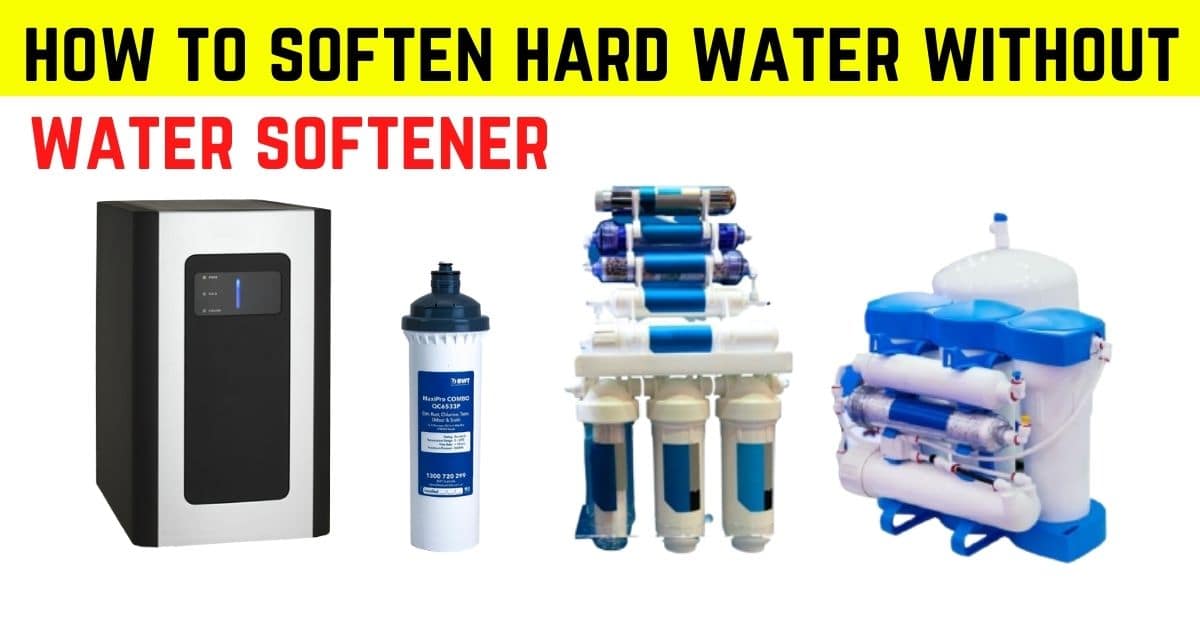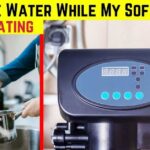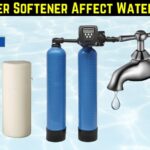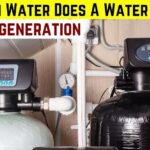If you’ve ever run a load of dishes or laundry and seen spots on your dishes or clothes, you’ve experienced the effects of hard water.
While hard water is not harmful to your health, it can be a nuisance because it makes cleaning harder and leaves behind residues.
Keep reading if you’re looking to soften hard water without using a magnetic water softener. We’ll show you some simple methods to help make your life easier.
10 Best Ways to Soften Hard Water without a Water Softener
Suppose you’re considering whether or not to install a water softener in your home. In that case, you may wonder if any other options are available.
While water softeners are an effective way to reduce the temporary hardness ion of your water, they’re not the only solution.
Here are a few other ideas that may be more attractive to you:
1. Use a Water Filter
According to Teamenoch, installing a water filter is a great way to reduce the hardness ion of your water without using chemicals or salt.
Water filters can remove many of the same contaminants as a water softener. Still, they don’t typically remove all of the hard minerals.
This means your water may still be somewhat hard, but it will be much softer than it would be without a filter.
Various filters are available, so you can choose one that best fits your needs. Water filters can be installed in line with your plumbing, making them easy to use and maintain.
2. Use a reverse osmosis system.
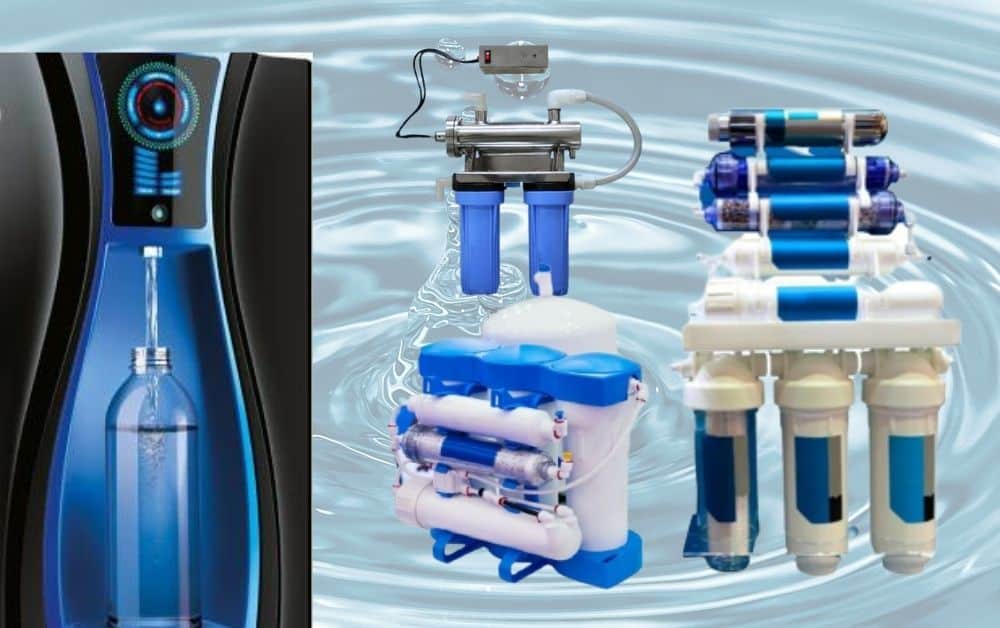
Reverse osmosis systems remove a wider range of contaminants, including dissolved solids, salts, and chemicals.
RO systems can effectively remove lead, arsenic, and fluoride impurities from drinking water.
RO systems are often used in areas where the water supply is heavily polluted or where there are high levels of contaminants.
They can provide a high level of purification and improve the taste and quality of the water.
3. Magnetic Water Softener
A magnetic water softener is a device that uses a magnetic field to alter the properties of minerals in hard water.
It does not remove the minerals but instead changes their structure, making them less likely to form deposits or scale.
The device consists of a series of magnets placed around a pipe, causing the water to pass through the magnetic field as it flows.
Magnetic water softeners are often marketed as a low-cost and environmentally friendly alternative to traditional water softeners, as they do not require salt or chemicals.
However, the effectiveness of magnetic water softeners is still debated among experts.
4. Water-softening shower head.
A water-softening shower head is a type of shower head that is designed to reduce the hardness of the water.
These shower heads contain filter cartridges that remove minerals such as calcium and magnesium from the water.
By reducing the amount of minerals in the water, these shower heads can provide a number of benefits.
5. Boiling The Water
Water-softening by boiling is a method of reducing the hardness of water by boiling it.
When water is boiled, the heat causes the minerals, such as calcium and magnesium, to precipitate and form a sediment at the bottom of the container.
The remaining water is softer and more suitable for various applications, such as washing clothes or dishes.
However, this method is unsuitable for large-scale water treatment and can be time-consuming and energy-intensive.
Additionally, boiling water can also remove some of the dissolved gases, such as oxygen and carbon dioxide, which can affect the taste and quality of the water.
6. Descaling solution.
Descaling solutions are designed to break down the mineral deposits already forming in your water pipes and fixtures.
They won’t prevent new water deposits from forming, but they can help remove the existing buildup.
You can get them online and at the nearest home improvement stores.
7. Use Soft Water
If you have a well or spring on your property, you may be able to use soft water for your needs.
This water is naturally smoother and won’t require a small water softener. However, you’ll need to have your water tested to ensure it’s safe for consumption and use.
8. Collect Rainwater
If you live in an area with frequent rainfall, you can collect rainwater and use it for your household needs.
It will help to reduce the hardness of your water naturally. You can collect rainwater in a barrel or tank and then use it to water your plants, wash your car, or even clean your home.
9. Buy Bottled Water
You can always buy bottled water if you’re not interested in installing a saltless water softener or filter.
It is easy to get the softened water you need without the hassle. However, it can be expensive to buy bottled water regularly.
10. Use Lemons or Vinegar
You can use lemon juice or vinegar if you only need to soften hard water occasionally without a softener. These acidic substances can help break down the minerals in hard water, making them softer.
However, they won’t be as effective as a water softener and may not be suitable for all uses.
Installing a water softener is an effective way to reduce the hardness of your water. However, other options are available if you’re not interested in using a magnetic water softener.
Consider one of these ideas to get the softened water you need without the hassle.
Signs of Hard Water?
A few key signs may indicate you have hard water in your home. Take a look at the following:
- Stains on dishes, glasses, and silverware – If you notice streaks or water spots on your dishes after washing them, it could be a sign of hard water.
- Soap scum buildup – Soap scum is a film that can build up on showers, tubs, and sinks. Hard water can make it more difficult to remove soap scum.
- Stiff, scratchy laundry – If your clothes feel stiff or scratchy after being washed in hard water, it’s a sign the minerals are affecting the fabric.
- Dry skin and hair – Hard water can strip away natural oils from your skin and hair, leaving them feeling dry.
If you notice any of these signs, it’s a good idea to have your water tested to determine the hardness level.
A few ways to test for hardness include using a home test kit or sending your water sample to a lab.
Once you know the hardness of your water, you can take steps to treat it.
There are a few ways to soften hard water, including using an outdoor softener or installing a whole-house filtration system and further explained in this video:
Conclusion
Hard water can cause a lot of problems in your household. While a water softener is an effective way to deal with hard water, it may not always be feasible for everyone.
Fortunately, there are several other ways to soften hard water without a water softener, like vinegar and baking soda, water conditioner, reverse osmosis system, and magnetic water softener.
Ultimately, the best way to soften hard water will depend on your specific needs and circumstances.
You can find the best solution by considering your budget, water usage, and the severity of your hard water problem.
FAQs:
What is hard water?
Hard water is water that contains high levels of minerals such as calcium and magnesium. It can cause various problems in your household, including damage to pipes, stains on clothes, and difficulty lathering soap.
How do I know if I have hard water?
There are several signs that you may have hard water, including white deposits on your dishes or faucets, soap that doesn’t lather well, and clothes that look dingy or feel stiff after washing.
Do I need a water softener to soften hard water?
While a water softener is an effective way to deal with hard water, it may not always be necessary or feasible for everyone. There are several other ways to soften hard water without a water softener.
What are some alternatives to a water softener?
Some alternatives to a water softener include using a combination of vinegar and baking soda, a salt-based solution such as a water conditioner or a reverse osmosis system, or a magnetic water softener.
Which method is the most effective for softening hard water?
The most effective method for softening hard water will depend on your specific needs and circumstances. You can find the best solution by considering your budget, water usage, and the severity of your hard water problem.
